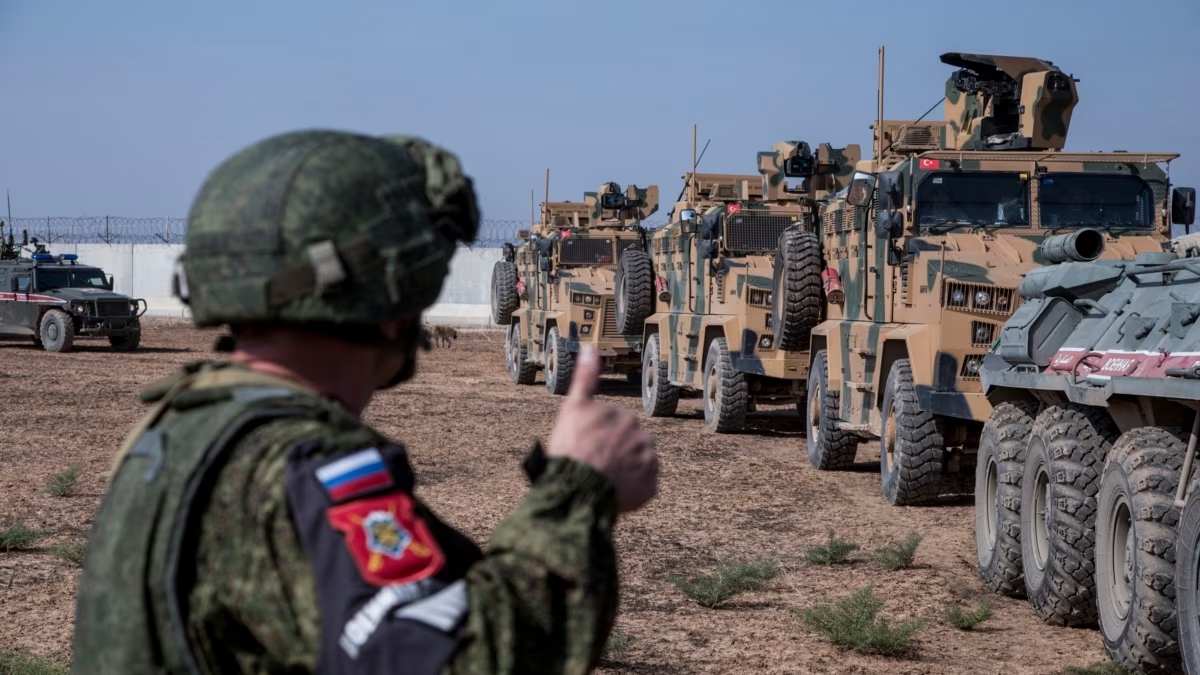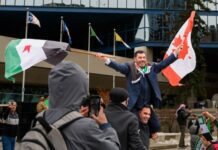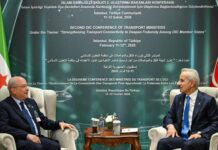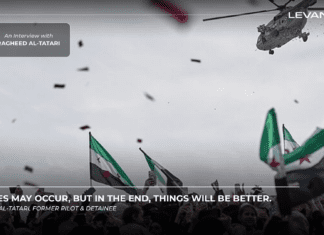
Joint ground patrols by Russian and Turkish forces resumed Thursday in northern Syria after a nearly year-long hiatus, signaling a renewed effort as Turkey moves closer to normalizing relations with the Assad regime, a process heavily supported by Moscow.
The Turkish Ministry of Defense announced the resumption of patrols, which target areas west and east of the Peace Spring operation zone. Initially established under the 2019 Sochi memorandum between Turkey and Russia, the patrols had been suspended since September 2023 due to escalating security concerns. The Ministry’s statement emphasized that the renewed patrols aim to secure Turkey’s borders and ensure the safety of civilians in the area.
The joint patrol on August 22, 2024, involved four military vehicles—two Turkish “Pars” and “Kirpi-2” vehicles and two Russian “Tiger” and “Typhoon” armored vehicles. A total of 24 soldiers participated, with the Turkish forces returning to their territory following the patrol, and the Russian contingent heading back to Qamishli Airport in Al-Hasakah. This marked the first collaborative mission between the two countries since the suspension of such activities last year.
These patrols come at a critical time in the context of Turkish-Assad rapprochement, a process strongly advocated by Moscow. Russian Foreign Ministry spokeswoman Maria Zakharova recently reaffirmed Moscow’s commitment to fostering dialogue between Turkey and the Assad regime, posing the importance of this rapprochement for regional security.
“Russia supports the normalization of relations between the two sides and is committed to this process,” Zakharova said in a press briefing. “Normalization between Ankara and Damascus is very important to advance the comprehensive Syrian settlement and enhance regional security.”
Zakharova highlighted the role of the Astana platform, a diplomatic initiative involving Russia, Turkey, and Iran, in facilitating these discussions. She stressed the need for continued dialogue to ensure the success of the normalization process, which Moscow views as essential for stabilizing Syria after more than a decade of conflict.
This geopolitical maneuvering coincides with the controversial reopening of the Abu Al-Zadine crossing between Turkish-backed Syrian National Army (SNA) areas and those controlled by the Assad regime. The reopening of the crossing, which had been closed for nearly two years, has been met with criticism from those who view it as a concession to the Assad regime and a potential undermining of their control in northern Syria.
The resumption of joint patrols, coupled with the reopening of the Abu Al-Zadine crossing, reflects the delicate balancing act Turkey is performing as it navigates its complex relationship with both Syrian revolutionary factions and the Assad regime’s Russian ally.








